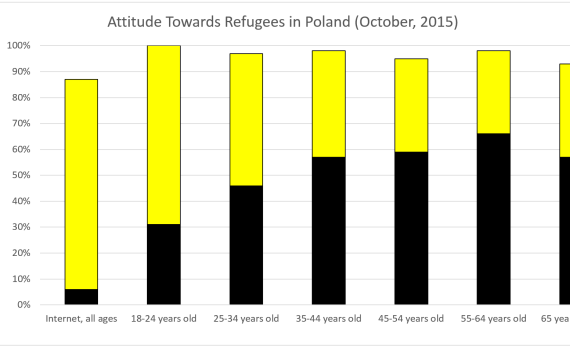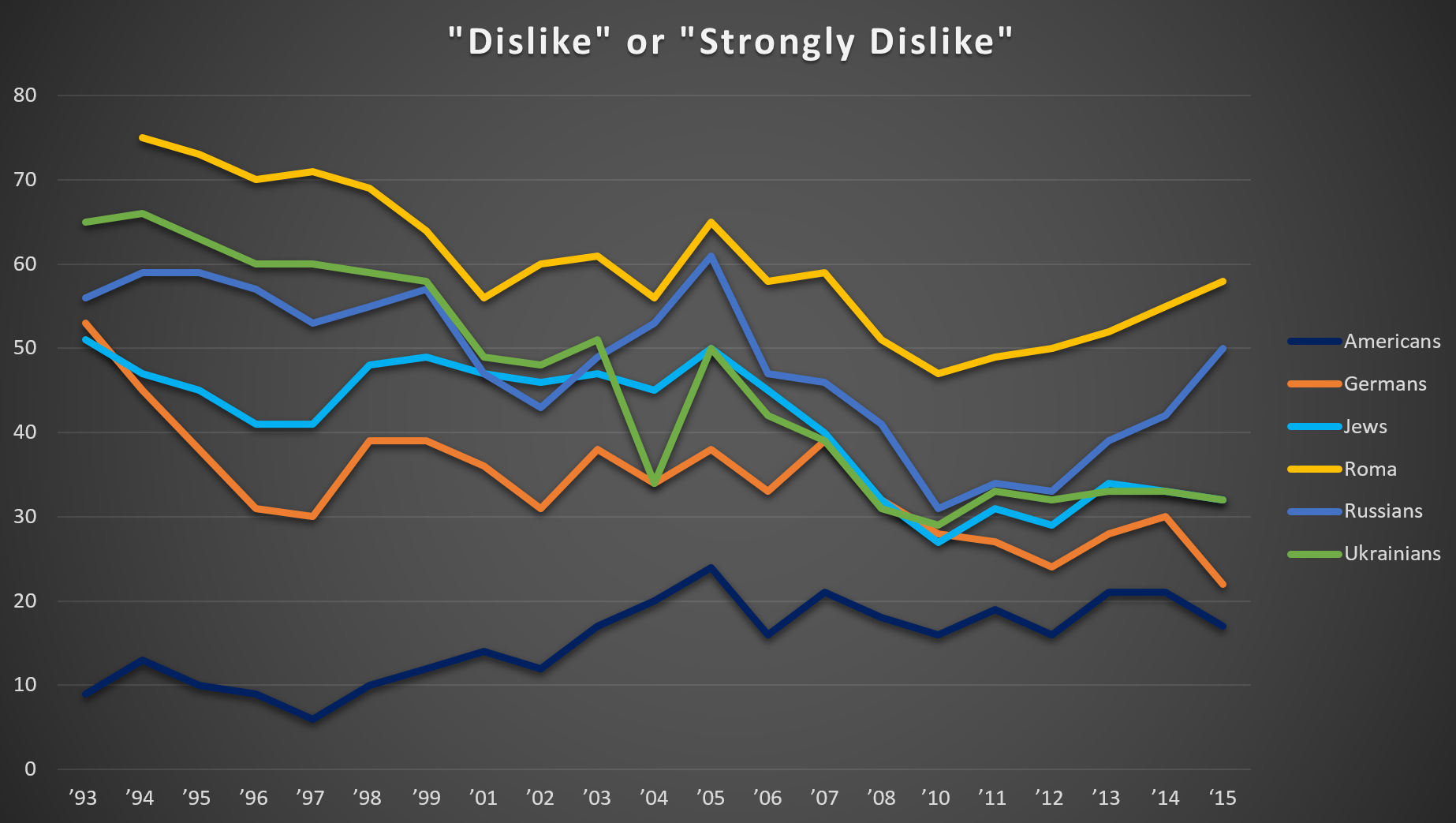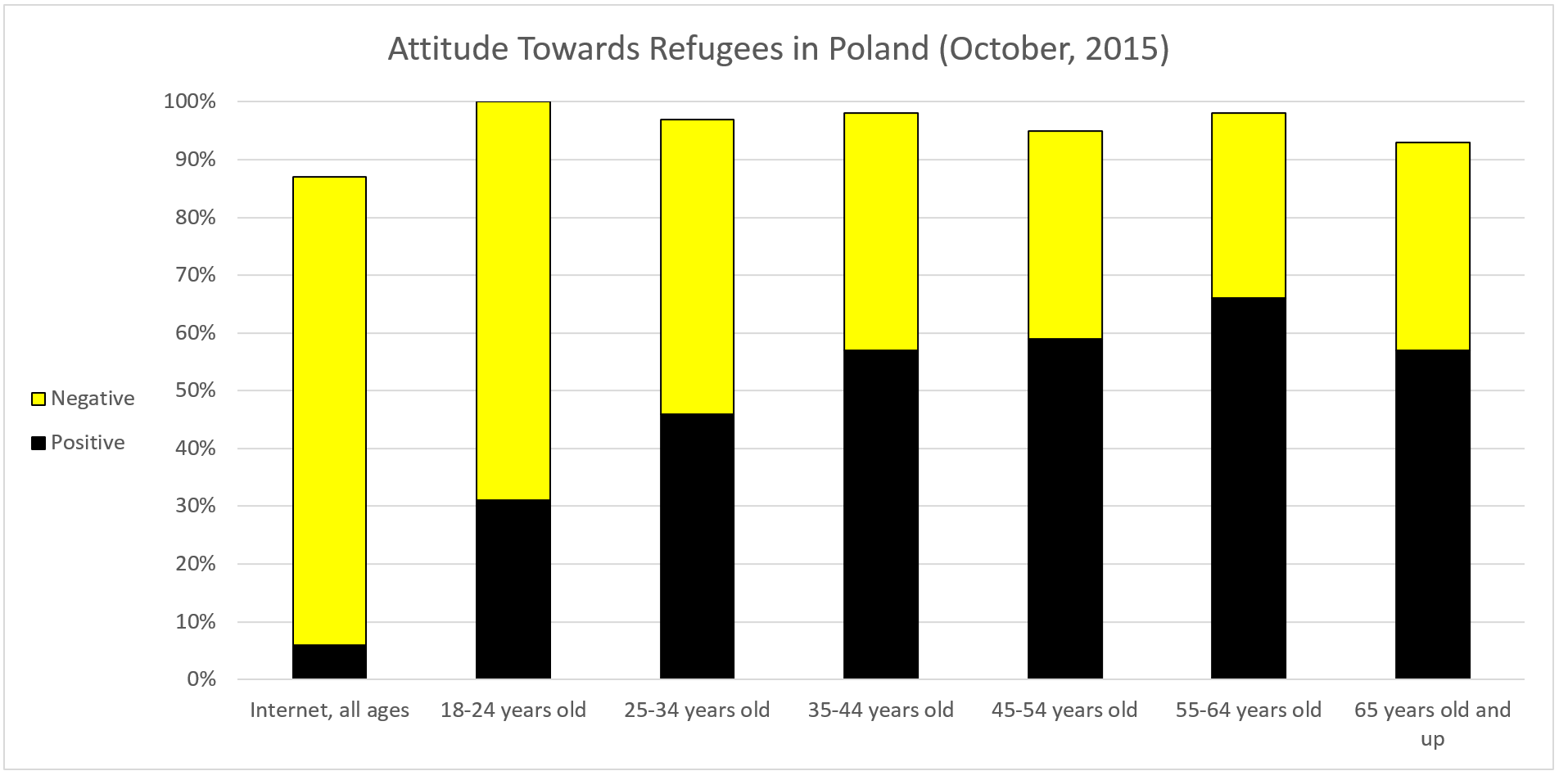
Polish Youth and Nationalism
Well, that didn’t take long.
Next week (November 12) the EU will be holding an important summit on the migration crisis, and Poland won’t be represented. President Andrzej Duda has selected that day for the official ceremonies handing over power to the new far-right government of Prawo i Sprawiedliwość (PiS). Duda has suggested that the outgoing prime minister could attend the event, or Poland could send someone at the ambassadorial level, since the summit is likely to be merely consultative and not make any real decisions. However, since all the other participants will be represented by high-ranking leaders, sending an ambassador (not to mention a politician who has just been removed from power) would convey the same signal as an empty chair.
Part of this is just a reflection of diplomatic ineptitude, but that’s not the whole story. PiS leaders have argued that international influence stems from assertiveness and power, not the give-and-take of collaborative diplomacy. One of the party’s complaints about the previous government was that they failed to stand up to German hegemony, using the excuse of international cooperation to disguise their weakness. So for the coming years we can expect many diplomatic squabbles as Poland loses its reputation as a team player. Domestically PiS will defend this position by characterizing it as a sign that Poland is finally standing up for its own interests instead of compromising with foreigners.
There’s a deeper issue at play here as well. As I wrote about in an earlier blog post, over the past few decades there has been a dramatic transformation in Polish attitudes towards cultural diversity, and towards specific nations and nationalities. A survey taken every year since the fall of communism showed steadily improving sentiments regarding Germans, Jews, Russians, even Roma. At least, things seemed to be trending in that direction, until a few years ago.
Even worse, a just-released survey about migrants suggests two disturbing trends. First, surveys carried out on the internet show intense and unremitting hostility towards foreigners (specifically, refugees), while paper surveys suggest a lot more tolerance. Both surveys were anonymous, so this isn’t a reflection of the puerile posturing and trolling of on-line discussion boards. Still, such a disparity could have something to do with the internet itself as a survey platform.
More concerning is the second phenomenon: openness to migrants is highest among older Poles, and hostility is focused among young people. This would seem counterintuitive to Americans, where we expect to see idealistic, progressive young people and more conservative, prejudiced older people. In Poland, too, there has long been an assumption that PiS drew its support from the elderly, rural, and religiously devout, while the youth were embracing a new cosmopolitan identity that would eventually overturn all the old stereotypes of Poles as xenophobic, antisemitic, and “backward.” I confess to making these predictions myself, and up until recently most data backed up this happy story. Unfortunately, recent signs are ominous.
It is possible (and I really want to be wrong about this) that what appeared to be the start of Poland’s golden age of growing prosperity and internationalization will turn out, in hindsight, to have been the entirety of that golden age. The country famously avoided the Great Recession of 2008, but amidst the encouraging aggregate statistics there were always some unsettling qualifications. One of these was the youth unemployment rate, and (even worse) the fact that many of the jobs young people did get were freelance positions without many benefits and with no job security. Some young Poles have embraced this new world with enthusiasm, relishing a sense of agency and responsibility for their own fate. These are the constituents of the new and unambiguously named libertarian party of Ryszard Petru, Nowoczesna (Modern). Many other young Poles consider this new world of uncertainty and atomizing individualism to be a danger, a step backward from the ideals of Solidarity (with both an upper and lower-case S) heralded by their parents. In theory such people could be drawn to leftist alternatives, and this probably explains the last-minute surge of the new party Razem (Together), which models itself after Podemos in Spain or Syriza in Greece. But unfortunately, that group may have emerged a bit too late, because another alternative for more communitarian-minded young people was already on the scene: the far right. PiS, of course, is the main representative of this trend, but they have a reputation as a party of the elderly and part of the “establishment.” Thus a significant share of the youth vote in the recent elections went to even more extreme nationalist elements in the movement led by the rock musician Paweł Kukiz. These are truly dangerous people—to use the Hungarian comparison, they are Jobbik to PiS’ Fidesz.
Nothing is foreordained, of course. This is a turning point in Polish history, and two paths are equally possible right now. If the economy worsens (particularly the employment situation for young people) and if the new PiS government effectively cultivates nationalist sentiments of resentment and a siege mentality towards the wider world, then this trend towards xenophobic attitudes among the young could mark the start of a broader slide towards the sort of Poland that so many West Europeans imagine in their own orientalist stereotypes. On the other hand, if movements like Razem (and yes, even the libertarians in Nowoczesna) are successful, and if the Polish economy continues to thrive, nationalism, racism, and neo-fascism could once again recede to the margins. Even five years ago, belonging to a far-right group or expressing openly racist views was seen among most young people as a sign of “backwardness”—something characteristic of “peasants” or the infamous “moherowe berety” that Jessica Robbins has described with such insight. Those dismissive attitudes were themselves problematic, but at least they kept the skin-heads at bay among the 20-somethings. That doesn’t seem to be the case right now, but there is still reason to hope that the tide will recede.
At least, I want to believe that there is.

